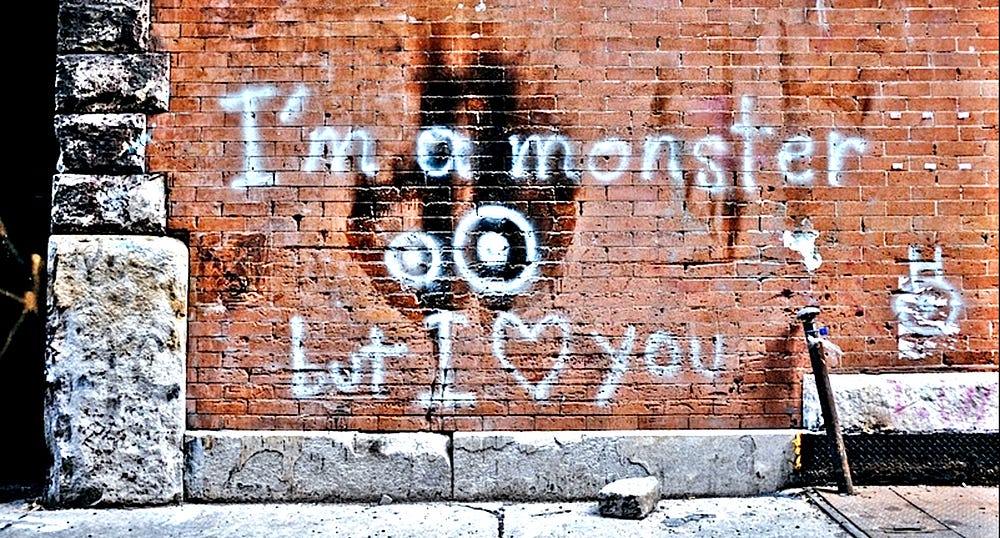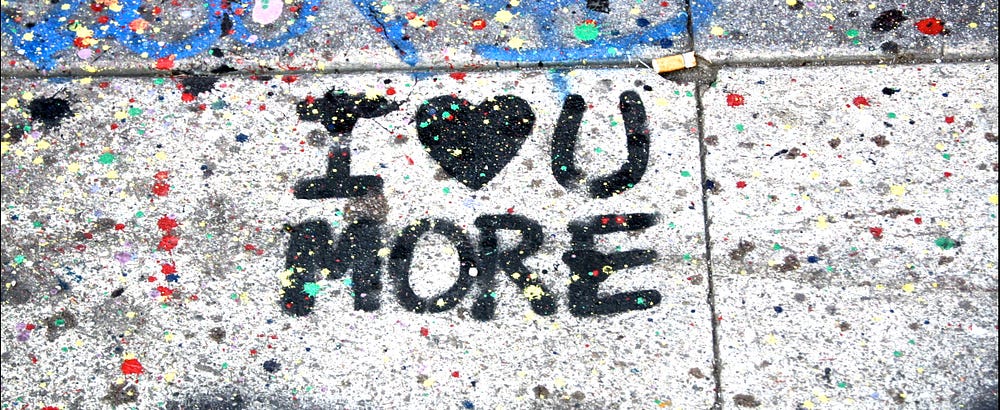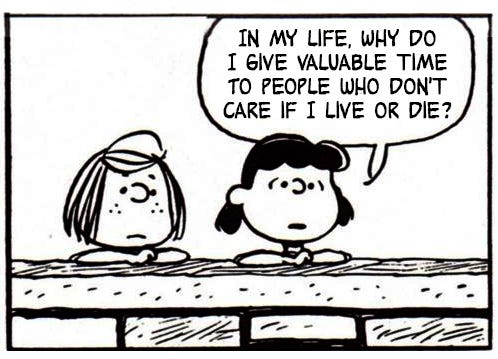
This post is about one-sided affection, or “unrequited love” — the kind of action that is:
“Not openly reciprocated or understood as such by the beloved. The beloved may not be aware of the admirer’s deep and strong romantic affection, or may consciously reject it.”
“Not reciprocated or returned in kind.”
This post is not, however, about falling out of love. That’s another topic altogether. For now, we’re just talking about the earliest stages.
And more importantly: we’re talking about the difference between reality and fantasy.
One-sided “love” is very common
“The object of unrequited love is often a friend or acquaintance, someone regularly encountered in the workplace, during the course of work, school or other activities involving large groups of people.”
It’s why it’s such a popular theme in a lot of media and pop culture, from literature (Great Gatsby, etc) to comic strips (Peanuts.)
But does that make it “real” and valid love?
THE CASE IN DEFENSE OF unrequited love
Parental love
…is perhaps the “best” (most understandable and valid) example of one-sided love.
Loving unconditionally — loving a child regardless of what they do, including whether they love you back — is part of being a good parent. And I hear from many parents that the “unconditional love” between themselves and their children goes so far as to be one-sided. They love even when the child won’t love back. It’s part of the job — and comes with the territory. And is, I think, to be expected of a good parent.
But what about romantic love? Is half-love better than no love? Is it even valid?
Unrequited passive love
The love we have for exes, for example.
Probably still love, technically. You want the best for them and you still love them as people, but you are no longer actively investing energy, time, or attention. Probably okay.
But active, half romantic love… still, love?
If “real love” is an act — a choice — then can’t we choose to love whomever we want? If love is fundamentally selfless in this way, then isn’t the decision to love, regardless of getting love back, still, love?
Eric Berne considered that,
“The man who is loved by a woman is lucky indeed, but the one to be envied is he who loves, however little he gets in return. .”
Philosopher Friedrich Nietzsche argued,
“Indispensable…to the lover is his unrequited love, which he would at no price relinquish for a state of indifference.”
I think many people would strongly beg to differ.
But if “love is a choice,” then isn’t choosing one-sided love still love?
Not exactly.
THE CASE AGAINST unrequited love
Psychiatrist Eric Berne states in his book Sex in Human Loving,
“Some say that one-sided love is better than none, but like half a loaf of bread, it is likely to grow hard and moldy sooner.”
The other half of “choosing to love”…
…is that your actions are meant to serve their needs, not yours.
And if their number one “need” regarding you is to “not receive or return your love,” then each time you extend it anyway, you are violating — not satisfying — their wishes. And that does not love. That’s self-love.
Emotional distress for the lover (unmet needs)
“The inability of the unrequited lover to express and fulfill emotional needs may lead to feelings such as depression, low self-esteem, anxiety and rapid mood swings between depression and euphoria.”
Emotional distress for the rejector (violated needs)
“There are two bad sides to unrequited love, but only one is made familiar by our culture — that of the lover, not the rejector. In fact, research suggests that the object of unrequited affection experiences a variety of negative emotions on a par with those of the suitor, including anxiety, frustration and guilt.”
(Guilt, lol.)
More commonly, it is anxiety. It is the unease of having something pushed on you that directly contradicts your own wants and needs — regarding yourself. It is this subtle sense of feeling usurped with your own emotions and wellbeing, and the underlying discomfort of feeling like your agency regarding yourself is being continuously contested.
Romanticizing — and the dangers for both people
We love stories of unrequited love — because most of us have experienced it, or wish we had someone pining over us — and love being made to feel validated; better; okay.
“Unrequited love has long been depicted as noble, an unselfish and stoic willingness to accept suffering.”
The trouble is that it’s not healthy.
Emotional instability and stalking
It’s not such a far cry to go from unrequited love to stalking.
“I receive some degree of amorous cyberstalking/harassment from people who read my blog… they always have one thing in common; they think that their feelings define a connection between us. They are so focused on how they feel about me that they never consider how I feel about them. They don’t stop to think how creepy I will find their messages, how how unnerved I will be by their constant attention. People who stalk me are always dismissive, or often even angry, about my feelings. My feelings are an obstacle to their satisfaction.”
And that does not love.
“Love without care for the other person’s lived experience is not love, it is self love.”
In the wake of his real-life experiences with Maud Gonne, W. B. Yeats wrote,
“All I had rhymed of that monstrous thing/Returned and yet unrequited love.”
One-sided love is total fantasy
And that makes it feel “safe.”
Your reality is the only reality, so it can never be contested. And you can never get “hurt.”
Consider men who “fall in love with” sex dolls. Or people who become “crazy cat ladies,” or even hoarders.
Sure, they “aren’t (actively) doing harm” to themselves or others (and, good on them, are directing their affections at inanimate objects rather than human beings), so on many levels, it’s a “live and let live” sitch. But this is never “healthy” love.
I know of one therapist who tells people when they cry to her that they’re in love with someone who doesn’t want them back:
“You’re not in love with the real him. You’re in love with an idea of him in your head.”
You’re in love with a fantasy. Some better version, stripped of the stuff you don’t like (namely, the reality of him not wanting you) and that’s not actually him. You don’t love him as he exists.
One-sided love isn’t healthy
Eric Berne suggested,
“How much greater is Dante gazing at Beatrice than Beatrice walking by him in apparent disdain.”
“How much greater,” in other words, “is the fantasy in Dante’s head than any version of reality, where it’s imperfect?”
According to Robert B. Pippin, Proust claimed,
“The only successful (sustainable) love is unrequited love.”
Guys. Gross.
The love may be “sustained,” suspended in time and prevented from changing.But that love won’t sustain us, preserved as it is in formaldehyde.
Sure, a painting of an apple will look pristine forever. But we can’t live off of paintings. We need real apples — blemishes and all.
Solution
Lots of remedies have been tossed around over the years.
Roman poet Ovid in his Remedia Amoris suggested things such as “travel, teetotalism, bucolic pursuits, and ironically, avoidance of love poets.”
But to be honest, it probably all boils down to self-esteem. Develop your self-esteem, and dumping your energy and attention into lost causes will seem remarkably less compelling.
Your time and attention are the most valuable things you have. Invest them in worthwhile people and things.
MEDIUM



